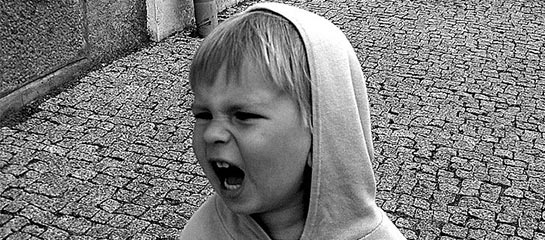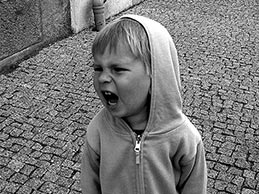By Sandra Roberts at PsychMatters Family Therapy Centre
As anyone who has ever dealt with challenging behaviour will know, it can be extremely stressful. Have you as a parent or teacher been faced with children that display challenging behaviour and wandered how to deal with it?
Children display challenging behaviour for a variety of reasons for example having difficulty communicating or lack of appropriate experience. Children behave in this way as it serves a purpose for them. Learners need lots of opportunities to behave constructively and to find new ways of behaving which they find more rewarding than the previous challenging behaviour. The term challenging behaviour defines the behaviour not in terms of the learner but in terms of the effect this behaviour has on other people, how this behaviour challenges others. Challenging behaviour has a lot to do with communication and relationships which are going wrong. All challenging behaviour has an emotional component either in relation to a learner whose challenging behaviour is causing concern or the teacher/parent who responds to it.
A child’s behaviour can be defined as “challenging” if it puts them or those around them, at risk or leads to poorer quality of life. It can also impact on their ability to join in everyday activities. Challenging behaviour can include aggression, self-harm, destructiveness, disruptiveness, tantrums, attention seeking behaviour, uncooperative behaviour etc. Challenging behaviour always invites a deepening of relationship and provides an invitation for the parent and/or the teacher to reflect on how they interact with the child.
See the behaviour as a cry out for help. The child is not trying to make life difficult for the parent and /or teacher; rather they are trying to show how difficult life is for them. Instead of punishment, when one looks behind the behaviour then they are more likely to find the resolution rather than close off the only way the child has of communicating their difficulties to them.
- Firstly it is important to separate the child from the behaviour. Using phrases like:” I love you but I won’t accept you behaviour.”
- Use “I” messages like for example I feel upset, I feel disappointed. Try not to use messages that accuse and put the child on the defence.
- Take action for self, not against the child which could mean removing yourself from the situation if you feel like you are going to lose it.
- Stay calm and separate from the actual behaviour. Remember not to personalise the behaviour and to not get into conflict. Conflict will not resolve anything.
- Act from a place of understanding and not anger by talking ‘with’ the child instead of talking ‘at’ the child. Try not to overreact to behaviour. An intense and abrupt reaction to behaviour may increase rather than diminish its frequency.
- Correct the behaviour and not the child. Try not to over punish.
- Do not break relationship of the child.
Understanding why someone is behaving in a challenging way is very important. Most times it’s because they’re having difficulty communicating their needs. It’s important to remember that all behaviour is a form of communication. We all like to have choice and control in our lives, and not having that can be very distressing for children that display challenging behaviour.
Giving children options, rather than making demands, enables them to make choices and influence their own lives and environment can make a considerable difference to their quality of life and their behaviour.
“People’s behavior makes sense if you think about it in terms of their goals, needs, and motives”. Thomas Mann



